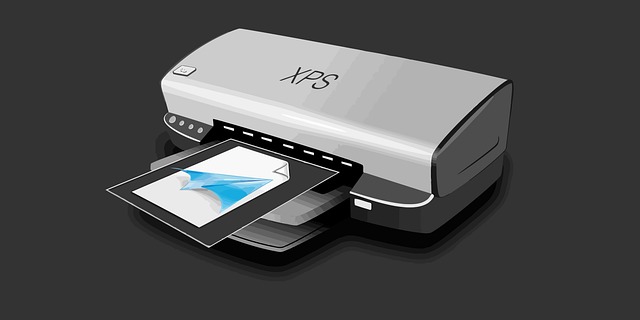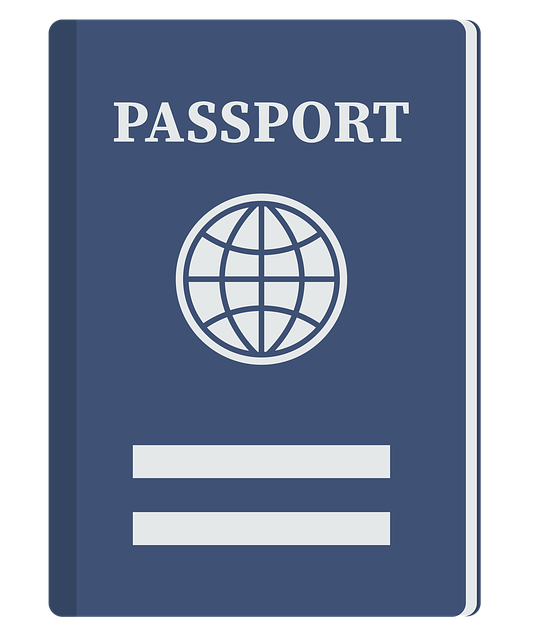UK Intellectual Property (IP) document translation services are essential for cross-border business success, ensuring legal accuracy and protection in patents, trademarks, copyrights, and trade secrets. Specialized translators navigate complex legal terms and cultural differences, maintaining document integrity and facilitating international transactions. Advanced technology, like AI, revolutionizes translations, offering speed and precision while adhering to UK laws. Engaging reputable services with native speakers and legal expertise is crucial for businesses expanding globally, safeguarding their IP rights and legal integrity.
In today’s globalized landscape, reliable translations of intellectual property (IP) contracts and legal documents are paramount for international success. Accurate translations not only facilitate cross-border transactions but also ensure compliance with local laws, mitigating risks and protecting valuable assets. This comprehensive article explores the intricacies of IP document translation services in the UK, covering everything from understanding translation complexities to leveraging technology, ensuring confidentiality, and case studies demonstrating successful implementations.
- Understanding the Significance of Accurate Translations in IP Contracts
- Navigating Legal Complexities: The Role of Professional Translators
- UK Intellectual Property Documents: A Deep Dive into Translation Requirements
- Ensuring Quality and Consistency in Legal Document Translation Services
- Best Practices for Reliable and Secure Translation of Confidential Data
- Choosing the Right Translation Provider for Your IP Documentation
- Case Studies: Successful Translations in the Intellectual Property Sector
- Technology's Impact on Accurate Legal Translations
- Common Mistakes to Avoid When Translating Legal Contracts
- The Future of IP Document Translation Services
Understanding the Significance of Accurate Translations in IP Contracts

In the realm of intellectual property (IP) contracts, accurate translations are not merely a nicety—they are a legal necessity. UK Intellectual Property Documents translation services play a pivotal role in ensuring that agreements involving patents, trademarks, copyrights, and trade secrets are understood and enforced correctly across borders. Given the high stakes involved in IP disputes, reliable translations are critical to protect the rights of all parties involved.
Imprecise or inadequate translations can lead to misunderstandings, misinterpretations, and even legal complications. A UK-based translation service specializing in IP documents should possess a deep understanding of both the language and the specialized terminology inherent in these agreements. They must also adhere to strict confidentiality standards, as the nature of IP contracts often involves sensitive information that requires the utmost discretion.
Navigating Legal Complexities: The Role of Professional Translators

Navigating the complexities of legal documents, particularly in the realm of intellectual property (IP) contracts, requires a keen eye for detail and a deep understanding of both languages and laws. This is where professional translation services come into play, offering invaluable support to businesses and individuals alike across the UK. With their expertise, they ensure that every nuance, every legal term, and every clause in IP documents is accurately conveyed from one language to another.
Professional translators are well-versed in the specific terminology used within intellectual property law, enabling them to provide reliable and consistent translations. They employ advanced tools and techniques to maintain the integrity of the original document while adapting it for a new linguistic context. This meticulous approach is crucial when dealing with contracts, as even minor errors or misinterpretations could have significant legal implications. Thus, engaging UK Intellectual Property Documents translation services ensures that your agreements remain enforceable and legally sound in their target markets.
UK Intellectual Property Documents: A Deep Dive into Translation Requirements

In the dynamic landscape of global business, navigating UK Intellectual Property (IP) documents requires a thorough understanding of both legal nuances and linguistic precision. Accurate translations are essential to ensure that IP rights are protected and exploited effectively across borders. When it comes to UK IP documents, translation services must adhere to stringent standards to maintain the integrity and validity of the original content.
Specialized UK Intellectual Property Documents translation services play a pivotal role in facilitating international transactions. These services not only bridge linguistic gaps but also grasp the technical terminology and legal concepts inherent in IP documentation. By employing native speakers with deep knowledge of both British English and the target languages, these services ensure that translated documents are precise, culturally sensitive, and fully compliant with UK intellectual property laws.
Ensuring Quality and Consistency in Legal Document Translation Services

Ensuring top-notch quality and consistency is paramount when it comes to translating legal documents, especially those pertaining to intellectual property (IP) rights in the UK. Accurate translations are crucial for protecting the legal standing of IP documents, ensuring that all terms and conditions are clearly conveyed across languages without any ambiguity. Reputable translation services specializing in UK IP documents employ experienced linguists who not only possess expertise in law but also have a deep understanding of the nuances and terminology specific to intellectual property laws.
Consistency is key in maintaining the integrity of legal texts during translation. Professional translators adhere to established standards and glossaries, ensuring that technical terms are rendered identically throughout the document. This meticulous approach guarantees that clients receive reliable translations that align with their legal framework, thereby facilitating seamless communication and understanding across borders.
Best Practices for Reliable and Secure Translation of Confidential Data

When dealing with confidential data in UK intellectual property (IP) documents, ensuring reliable and secure translations is paramount. Best practices involve engaging professional translators with specific expertise in legal and technical fields. These experts should be fluent in both source and target languages, maintaining terminological consistency and accuracy across all documents.
Secure translation processes include the use of encrypted platforms for data transfer, access controls to limit viewing permissions, and non-disclosure agreements (NDAs) to protect sensitive information. Additionally, using established UK IP documents translation services that adhere to strict quality assurance protocols guarantees a high level of precision and confidentiality. Regular reviews and feedback mechanisms further enhance the accuracy and security of translations, ensuring that confidential data remains intact and protected throughout the process.
Choosing the Right Translation Provider for Your IP Documentation

When it comes to IP documentation, selecting a reputable and experienced translation provider is paramount. In the UK, the legal landscape demands precise and accurate translations to ensure intellectual property rights are protected. Look for providers specialised in legal and technical translation services, who employ native speakers with expertise in Intellectual Property law.
This ensures not only grammatical correctness but also a deep understanding of the subtle nuances and terminology specific to IP documents. Reputable firms will offer quality guarantees, maintain strict confidentiality, and adhere to industry best practices, such as using professional translation memory tools to ensure consistency across projects.
Case Studies: Successful Translations in the Intellectual Property Sector

In the dynamic landscape of global business, accurate translations of IP documents are more critical than ever. Case studies highlight successful collaborations between UK-based companies and top-tier translation services specializing in intellectual property (IP) contracts. These partnerships have seamlessly navigated complex legal terminologies and cultural nuances, ensuring agreements remain binding and enforceable worldwide.
For instance, a leading pharmaceutical company encountered challenges translating clinical trial protocols into multiple languages for international partners. By enlisting experienced translators with a deep understanding of medical jargon and regulatory requirements, they achieved flawless translations that facilitated smooth collaboration. Similarly, a tech startup successfully expanded its global reach through precise translations of patent applications and licensing agreements, securing protections for their innovative ideas across diverse markets. These examples underscore the vital role UK Intellectual Property Documents translation services play in facilitating international business growth and legal integrity.
Technology's Impact on Accurate Legal Translations

Technology has significantly transformed the landscape of legal translations, particularly in the realm of UK Intellectual Property (IP) documents. Advanced machine translation tools and artificial intelligence algorithms now play a pivotal role in ensuring precise and efficient interpretations. These innovations enable translators to navigate complex terminologies specific to IP laws, patents, trademarks, and copyrights with greater ease.
By leveraging AI-powered platforms, professional translation services can offer near-instant translations that maintain the legal nuances and context of the original text. This not only expedites processes but also enhances accuracy, reducing potential errors that could have significant implications in court. UK IP document translation services now benefit from sophisticated tools capable of handling vast corpora, enabling translators to access a wealth of knowledge and ensure consistent terminology across various projects.
Common Mistakes to Avoid When Translating Legal Contracts

When translating legal contracts, especially those related to UK Intellectual Property (IP) documents, avoiding common mistakes is crucial for ensuring accuracy and validity. One frequent error is neglecting to adapt terminology specific to intellectual property law. Legal jargon varies across languages, so translators must have a deep understanding of both the source and target languages to convey precise meanings. For instance, terms like “copyright,” “patent,” or “trademark” need to be translated appropriately to maintain legal integrity.
Another mistake to avoid is literal translation without considering cultural and juridical contexts. While word-for-word translations may not always be accurate, maintaining the original intent and structure of the contract is essential. Legal documents often contain nuanced clauses that require a translator’s expertise to convey effectively in the target language. Using UK IP document translation services with experienced professionals can help mitigate these risks, ensuring that legal contracts are translated accurately and comply with local laws and regulations.
The Future of IP Document Translation Services

The future of IP document translation services in the UK looks promising, driven by advancements in technology and a growing demand for accurate, efficient, and cost-effective solutions. Artificial Intelligence (AI) and Machine Learning (ML) are revolutionizing the industry, enabling faster turnarounds and improved accuracy. Advanced AI tools can now handle complex linguistic nuances, ensuring that UK Intellectual Property Documents maintain their legal integrity and precision across languages.
As global businesses continue to expand, the need for reliable IP document translation services will only increase. Legal professionals and companies must adapt to these changes, embracing technology to stay competitive. By leveraging AI, ML, and specialized translation platforms, UK-based translation services can meet the challenges of tomorrow, providing seamless, high-quality translations that comply with international standards and legal frameworks.
In conclusion, accurate translations of IP contracts and legal documents are paramount for navigating complex international intellectual property landscapes. The article has explored various facets of this critical issue, from understanding the significance of precision in such translations to choosing the right provider. As technology advances, professional translation services must adapt to meet the evolving needs of the UK Intellectual Property Documents sector, ensuring quality, consistency, and security in every project. By leveraging best practices and avoiding common mistakes, organizations can rely on these services to facilitate seamless global collaborations and protect their valuable IP assets.



